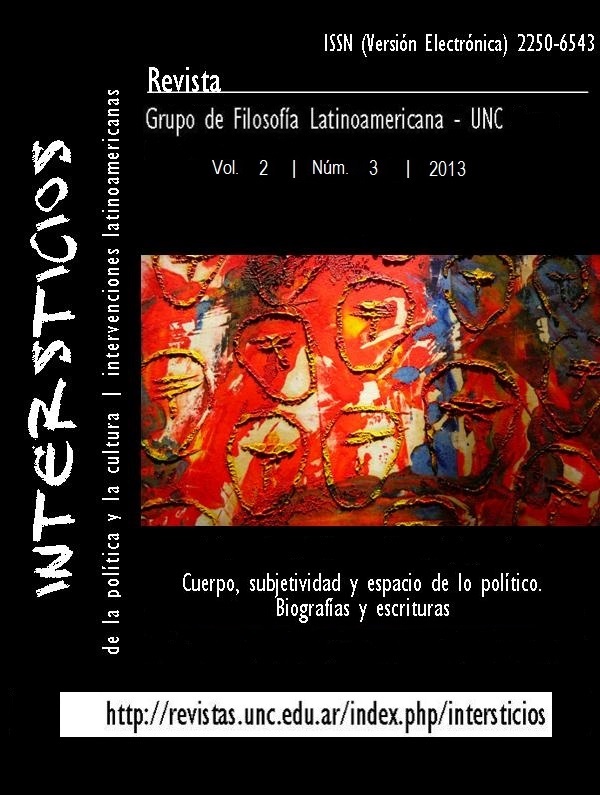¿CÓMO INTERPRETAR EL CORDOBAZO? DOS LECTURAS SOCIOLÓGICAS
Abstract
Resumen
Entre fines de 1969 y comienzos de 1970, Juan Carlos Agulla y Francisco Delich intervinieron, desde lugares análogos en el espacio intelectual, publicando sendas interpretaciones sobre “El Cordobazo”; en ambos casos, la disciplina sociológica se presentaba como la clave interpretativa de una crisis que debía ser explicada aunque, en uno y otro caso, dispusieran de argumentaciones y grillas conceptuales tan dispares como las redes intelectuales que a ellos se vinculaban. En ese sentido, la sociología era a la vez una profesión en disputa y un corpus analítico dispuesto para la intervención en los debates sociales contemporáneos. La incertidumbre abierta por los sucesos de mayo de 1969 evidenciaban, para Agulla, la fractura del consenso al interior de una elite social cuya reticencia a integrarse plenamente en un proceso de transformación industrial había terminado por desacreditarla ante sectores sociales cuyo accionar la desbordaba. Pero sería justamente en la protesta social que esos mismos colectivos producían, la clave en donde Delich depositaría gran parte de su fuerza argumentativa. Una Córdoba industrializada, signo incontestable de modernización económica de esa “ciudad de frontera” (Aricó, 1989), adquiriría en ambos trabajos, valoraciones menos antagónicas que ambiguas.
Palabras Claves: Córdobazo – Sociología – Crisis – Intelectuales – Movilización Social
Abstract
Between late 1969 and early 1970, Juan Carlos Agulla and Francisco Delich involved, from analogous places of the intellectual field, publishing interpretations of "The Cordobazo", in both cases, the discipline of sociology is presented as the interpretative key of a crisis that had to be explained although in both cases, were available arguments and conceptual grids as diverse as intellectual networks that linked them. In this sense, sociology was both a profession in dispute and a analytical corpus ready for intervention in contemporary social debates. The Uncertainty open by the events of May 1969 evidenced, for Agulla, the breaking of the consensus within a social elite whose reluctance to fully integrate into a process of industrial transformation had finally discredit to social sectors whose actions the overflowed. But it would be just in social protest that these same groups produced the key where Delich deposited much of their force of argument. An industrialized Cordoba, indisputable sign of an economic modernization "border town" (Arico, 1989), acquire in both studies, valuations less antagonistic but ambiguous.
Keywords: Cordobazo – Sociology – Crisis – Intellectuals – Social Mobilization
Downloads
Downloads
Additional Files
Published
Issue
Section
License
Authors who have publications with this journal agree to the following terms:
a. Authors will retain their copyright and grant the journal the right of first publication of their work, which will simultaneously be subject to the Creative Commons Attribution License that allows third parties to share the work as long as its author and first publication in this journal are indicated.
b. Authors may adopt other non-exclusive license agreements for distribution of the published version of the work (e.g., deposit it in an institutional telematic archive or publish it in a monographic volume) as long as the initial publication in this journal is indicated.
c. Authors are allowed and encouraged to disseminate their work through the Internet (e.g., in institutional telematic archives or on their web page) after the publication process, which may produce interesting exchanges and increase citations of the published work (see The effect of open access).


